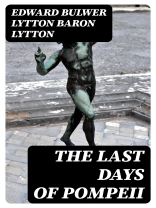In ‘The Last Days of Pompeii, ‘ Edward Bulwer Lytton crafts a riveting narrative that intertwines historically informed fiction with rich, atmospheric detail. Set against the backdrop of the catastrophic eruption of Mount Vesuvius in 79 AD, the novel explores themes of love, morality, and the conflict between freedom and oppression. Lytton’s prose is marked by its dramatic flair and romantic sensibility, capturing the vibrant life of Pompeii in its final moments while offering a poignant critique of societal norms and human folly. As a precursor to the historical novel genre, this work reflects the mid-19th century fascination with antiquity and the sublime, bridging literature and philosophy while inviting readers to ponder the transient nature of civilization. Edward Bulwer Lytton, a prominent Victorian novelist, playwright, and politician, had a keen interest in history and the human condition, evident in his body of work. His deep immersion in classical studies and travel to Italy influenced his depiction of Pompeii, allowing him to evoke not just the physical destruction but also the spiritual and emotional resonance of the event. Lytton’s diverse literary background and political perspectives are woven into the text, enriching the narrative with layers of meaning and inquiry. This compelling novel is recommended for both fans of historical fiction and those interested in the moral dilemmas evident in moments of crisis. Lytton’s vivid storytelling and intricate character development make ‘The Last Days of Pompeii’ an engaging exploration of human resilience and tragedy, timeless in its relevance and profound in its implications.
Sobre el autor
Edward George Earle Lytton Bulwer-Lytton, 1st Baron Lytton (1803–1873), was a prolific English writer and politician who made a significant impact on Victorian literature with his novels, plays, and poems. He is perhaps best known for the historical novel ‘The Last Days of Pompeii’ (1834), which depicts life in Pompeii in the days before the city’s destruction by the eruption of Mount Vesuvius in AD 79. The novel’s vivid characters and detailed reconstructions of ancient Roman life made it an immense success and it has been adapted into several films and stage works. Bulwer-Lytton’s literary style combined romanticism with elements of mystery and the supernatural, resonating with the Victorian fascination with history and classical antiquity. He was also a master of plot construction and is credited with coining famous phrases such as ‘the great unwashed’ and ‘the pen is mightier than the sword.’ Serving as a Member of Parliament and subsequently as Secretary of State for the Colonies, his political career ran in tandem with his literary pursuits. Bulwer-Lytton’s influence on literary culture was profound, both for his prodigious output and for his nurturing of other literary talents, not least Charles Dickens, with whom he shared mutual admiration. Baron Lytton’s works remain a fixture in discussions of 19th-century literature and his contribution to genre fiction, particularly science fiction and historical narrative, is still recognized today.












